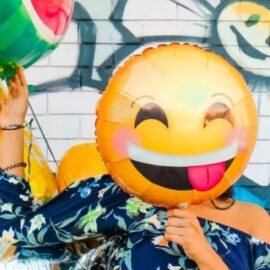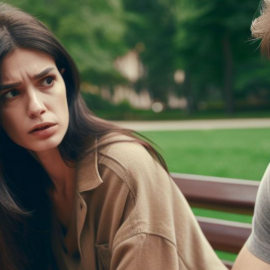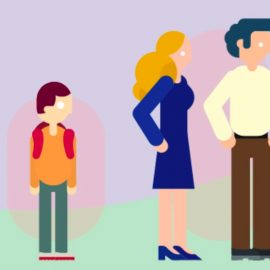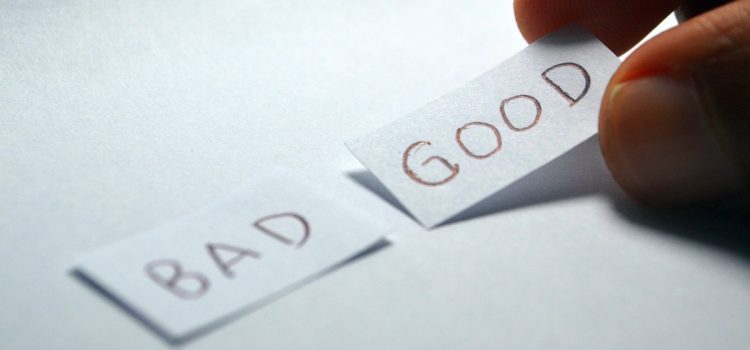
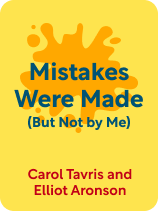
This article is an excerpt from the Shortform book guide to "Mistakes Were Made (But Not by Me)" by Carol Tavris and Elliot Aronson. Shortform has the world's best summaries and analyses of books you should be reading.
Like this article? Sign up for a free trial here.
Why do good people do bad things? What defines goodness?
To keep us free from cognitive dissonance, we often convince ourselves that the bad things we’ve done don’t matter because we’re good people. In Mistakes Were Made (But Not by Me), Carol Tavris and Elliot Aronson question whether the bad things we do ruin our image as good people.
Let’s look at why good people do bad things and try to justify their actions.
Are You a Good Person?
Often the most powerful quality that contributes to our positive self-image—and that we thus aim to keep free from dissonance—is our belief that we’re good and righteous individuals. According to Tavris and Aronson, we all want to believe we’re good people, so we’re highly motivated to justify any actions we take that threaten our sense of righteousness. This is especially true in circumstances where we question why good people do bad things—we have to reconcile the harm we’ve caused with our belief in our own goodness.
How We Justify Causing Harm
The authors state that when we’ve caused harm, we use self-justification to preserve our self-image as good, righteous people. When we do something that hurts someone else, we often reduce the resulting dissonance by justifying in one of three ways:
- Denying wrongdoing entirely
- Making excuses that minimize our culpability: for example, “I couldn’t help it,” or “I was provoked”
- Accepting responsibility for our actions, but viewing them as isolated past incidents and ignoring their consequences in the present
Reactions to Hurting or Being Hurt
When we’ve hurt someone else, the authors note, we usually seek to move past our harmful actions quickly to resolve the painful dissonance of our actions. Over time, memory distortion and self-justification help to reduce the sting of guilt and remorse.
By contrast, when we’ve been wronged, we generally hold onto the pain of the event for a long time. We’re much more likely to report lasting negative consequences from the actions of the person who hurt us.
Additionally, sometimes we use victimhood to justify harm without tarnishing our self-image as a good person. Being wronged creates a sense of self-righteousness, which we can then use to justify cruelty toward the person who hurt us in the name of getting back at them.
Cycles of Harm
According to Tavris and Aronson, research shows that being hurt doesn’t reduce the chance that we’ll harm someone else. In reality, self-justification allows us to be harmed and commit acts of harm at the same time, perpetuating the cycle.
We know that good people don’t deliberately inflict pain on others, so when we do harm others on purpose, we resolve the dissonance and maintain our sense of righteousness by convincing ourselves that the people we harm deserve it. Each side goes back and forth in an endless cycle of escalating retaliation until they can no longer empathize with each other.
Stereotypes and Prejudice
One specific means of harming others that our brains skillfully justify is having prejudice—predetermined opinions about a group of people that aren’t based on reason or experience. The authors argue that everyone is capable of prejudice because of the way our brains work—we naturally organize information into categories that become stereotypes when applied to other people.
Stereotypes can be advantageous—they allow us to make choices using past experiences, recognize important differences between groups of people, and judge how others will likely act in a given situation.
However, stereotypes also harmfully emphasize the differences between groups of people and diminish the differences within groups of people. They allow us to make generalizations about another group that justify our poor treatment of them while maintaining our sense of righteousness, and these generalizations can turn into prejudices.
Self-Justification and Prejudice
The design of the brain also makes it difficult to identify prejudice in ourselves. The authors argue that this is because the brain is built to convince us we aren’t biased—it persuades us that our perception of reality is clear and accurate (a phenomenon called naive realism). We believe that if an opinion wasn’t reasonable, we wouldn’t have it, so other fair, good, reasonable people will see things the same way we do.
We justify our prejudices with the belief that our hostility toward other groups of people is reasonable and warranted (or else, we wouldn’t feel it), and it’s the other group that needs to change.
That being said, most of us still aren’t truly comfortable with our prejudices, the authors argue. Our negative feelings about another group of people conflict with our understanding that it’s morally or socially unacceptable to feel that way. This threatens our view of ourselves as good people and creates uncomfortable dissonance with our perceived righteousness, which we dispel through further self-justification. We self-justify by reinforcing our belief in harmful stereotypes (for example, the belief that the other group is violent, unintelligent, or untrustworthy). This cycle allows us to continue causing harm to the group while maintaining our sense of righteousness.

———End of Preview———
Like what you just read? Read the rest of the world's best book summary and analysis of Carol Tavris and Elliot Aronson's "Mistakes Were Made (But Not by Me)" at Shortform.
Here's what you'll find in our full Mistakes Were Made (But Not by Me) summary:
- Why we feel discomfort when we act in a way that doesn't align with our values
- How patterns of self-justification can cause our beliefs to diverge sharply from other people’s
- How we can break the cycle of self-justification and hold ourselves accountable

